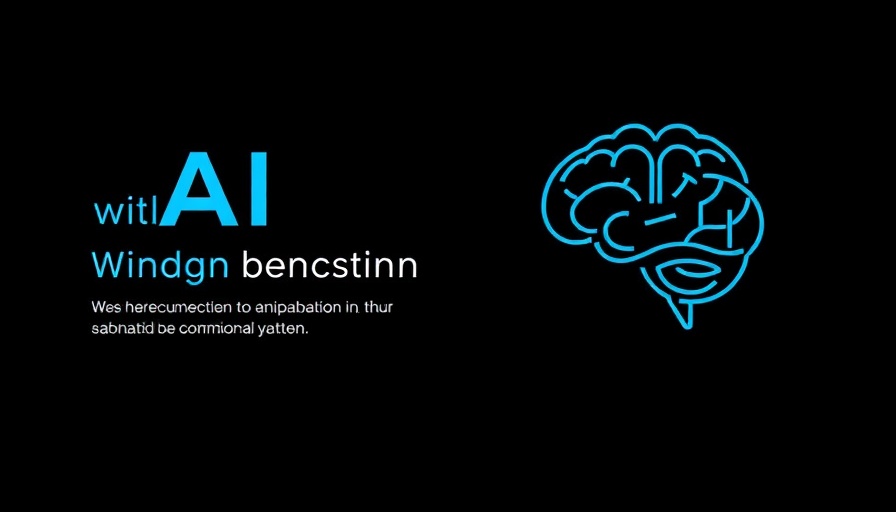
The Future is Here: Understanding AI Agent Verification
As we step into 2025, artificial intelligence (AI) is not just evolving but fundamentally transforming the way businesses operate. AI agents are becoming integral to organizational success, taking on roles that involve complex decision-making and interactivity far beyond simple task execution. However, with this leap comes great responsibility—specifically, the need for rigorous verification of these AI systems. Just as cybersecurity became essential with the dawn of the digital age, AI agent verification is rapidly emerging as a necessity for companies leveraging AI.
The Implications of AI Agent Activity
Imagine an AI agent managing a multi-million-dollar budget for a franchise. This agent has access to various departments and financial records, capable of approving expenditures with minimal human oversight. If it miscalculates or misinterprets a budget, the financial fallout could be significant. Conversely, if it enforces strict compliance to protocol, it can frustrate employees and hinder productivity. The reality is stark: as these agents operate in dynamic environments, they may make decisions that are hazardous in their unpredictability. This underscores the urgent need for sophisticated verification mechanisms that continuously monitor their performance.
Current Verification Gaps of AI Models
Presently, efforts to verify AI focus primarily on foundational models like GPT-4. While these models are scrutinized for biases and coding errors, the AI agents utilizing them often slip through the cracks of rigorous testing. It’s crucial to understand that unlike traditional software, which can be thoroughly tested through unit tests and code reviews, the behavior of AI agents can be erratic, leading to unpredicted outcomes in multi-step processes. As AI applications expand within franchising—such as lead generation and customer engagement—there needs to be a robust framework for overseeing not just the foundational technology but also the unique behaviors of the agents built upon it.
Broader Context: The Role of AI in Franchising
The integration of AI in franchising is no longer a novelty but a vital component of competitive strategy. From automating workflows to enhancing customer service with AI-driven chatbots, franchises are leveraging these technologies to reduce operational costs and improve efficiency. AI in franchising—be it through predictive lead scoring or personalized marketing—enables franchises to respond to market shifts with agility and insight. Verification of AI agents becomes especially critical as these technologies directly influence customer experiences and brand reputation.
Examining Future Trends in AI Adoption
Looking ahead, AI and automation in franchising are set to become more complex and prevalent. Experts predict that as businesses increasingly adopt AI-driven frameworks, the demand for thorough agent verification will grow. This necessity echoes the early internet days when businesses only realized the significance of cybersecurity after significant breaches occurred. The proactive approach toward AI agent verification must be embraced by franchisors to mitigate risks, maintain accountability, and enhance customer service experiences.
The Value of Direct Action: What You Need to Implement
To mitigate risks associated with AI agents, it's imperative for franchise leaders to invest in comprehensive frameworks for monitoring and verifying agent behavior. Consider implementing continuous performance assessments and developing standardized protocols for AI operations within your franchise. This includes leveraging tools that provide analytics on AI behavior and keeping abreast of the latest trends in AI technology. By understanding the nuances of AI in your franchise operations, you promote not just safety and efficiency but also pave the way for strategic growth in an increasingly digital marketplace.
In conclusion, the rise of AI agents presents a remarkable opportunity for franchises to revolutionize their operations but it also calls for robust verification protocols to navigate potential challenges. With an eye toward the future, organizations must prioritize AI agent verification, ensuring these autonomous systems act safely and effectively. This not only fosters trust in AI technologies but also positions businesses advantageously in the competitive franchise landscape. Don't wait for a crisis—now's the time to enhance your AI and automation strategies.
 Add Row
Add Row  Add
Add 




Write A Comment